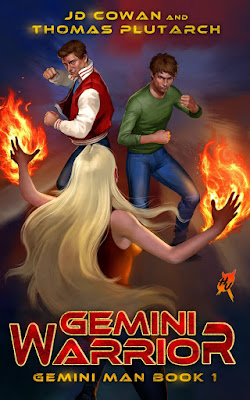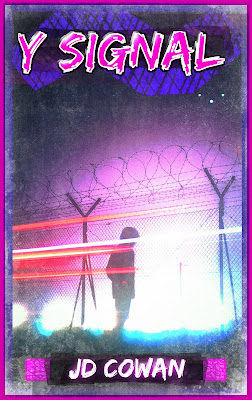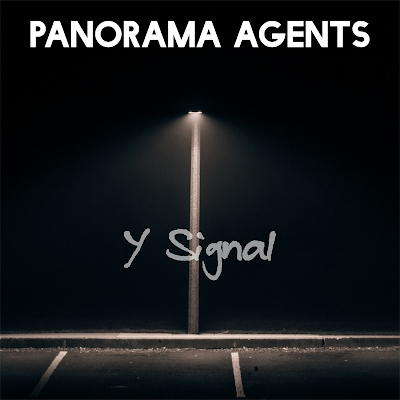 |
| Remember this? |
The year is almost over, and what a weird time it's been. After the last three years of outright insanity, we are hopefully looking at an upturn. Eventually, anyway. We don't seem to quite be out of the woods just yet.
I want to thank every single reader for a very active 2022. Writing-wise, this was my biggest year so far, as I put out three different books, something I had been trying to do for years at this point but was never quite able to manage it. They all have been surprising successes, too, so I must thank you for reading and enjoying. It's been quite a humbling experience finally releasing these works out into the world, as it always is.
For those who missed them, I started the year with Generation Y: The New Lost Generation, with my co-authors Brian Niemeier and David V. Stewart, a free book that you can still pick up today at no cost. There are also files for a physical edition if you wish to print them out for yourself! The book was written to be shared and spread far and wide, after all. I designed and edited this together myself to define the generation Madison Avenue is currently trying to memory-hole event today. Gen Y is having an identity crisis, and is on the edge of despair, so this is the moment to hopefully help them find their way again. This book should clear any misconceptions about the generation you have, and should show just how much has been misinterpreted and lost over the 25 years since Cultural Ground Zero, when modernity died. You will find all of that included for free.
After that, I put out the long-requested series on Fandom in book form. The Last Fanatics is still quite controversial to many in the industry, but it is also honest about its reflections on what led us here. The entire project is a heavily edited and reformatted version of the blog series I had been working on for over three years, studying the early days of Fandom and learning just how the Fanatic mindset has been so damaging to creativity and art in general. It was not a journey I chose to accept for my own health or really any form of enjoyment. It is an avenue that needed to be explored, and I am glad to have done so. My readers wanted to see where this rabbit hole would lead to, so I hope I did not disappoint in the complete journey. Read it yourself to see a descent down into the anti-social lion's den that reveals some dark truths about Fandom and how much falsehood you've been sold about it. Only by ejecting their influence can things really ever improve.
Lastly, I released what some have called my masterpiece, the complete and full version of Y Signal. This was my attempt at pure weird fiction framed through an era people my age look back on rather fondly, to find things underneath the surface we might have missed the first time around. You can still read the first part on the blog, but the final version is both edited and much longer than that initial piece was. Go through an entire year with our main character and learn the truth of a past long since obscured by nostalgia and open hatred for what came before. It's a lot more complicated than you might think, and it definitely won't end up where you think it will. Regardless, this full novel contains all the adventure and battles with the Weird you should expect from my works by now. It is just framed through a much different lens than before.
Oh yes, and in 2022 I managed a writing goal of mine to be published in Cirsova Magazine! It was a very well received issue, too. Surprisingly popular! My story, Dead Planet Drifter continues the adventures of Galactic Enforcer Ronan Renfield as he patrols the boundary between the Here and There in the distant future. I do have more in the series planned, but you will have to wait a little longer to see them. The previous story, Golden Echoes, was published in StoryHack #7, if you somehow missed that one. Trust me, I've got a backlog I'm both writing and editing. You will see more of our overwhelmed Enforcer in the future!
I also have other short stories I have been working on, all of which for projects that have not been revealed yet, some aren't even announced! The main series of short stories I'm focusing on are for the above Galactic Enforcer (which also ties in with something else . . . you'll see when we get there), and my Night Rhythm series about a superstitious rockabilly band on an alien planet far into the future as they roam across the unknown land. They are my main focus in this arena right now, but I do have plans for other stories later to come. I'm definitely not short on inspiration, just time and means. I'm still very much a one-man publishing machine.
As for what is next in the novel realm, well, now that I got those three big projects out into the public, it is finally time to turn my attention back to the Gemini Man series that I received back from Silver Empire. It has been years since I began on this one, and now it is time to finally wrap the whole project up and give readers the complete experience. I can finally give it the focus it needs. The last thing I want is to leave readers with an incomplete work.
For those who missed it, Gemini Man was a series I concocted for the now-defunct Silver Empire Publishing, as part of their Heroes Unleashed universe. They invited in a bunch of writers to construct their own series of heroes to be plopped in and contribute to the greater whole. They would publish the stories for us, just making sure everything lines up with each other.
The first work was Morgon Newquist's Heroes Fall book which established the entire universe and the rules the rest of us were to play by for our works. Unfortunately, because of what happened in the world over the last few years, and the writers having tor republish all their work again after getting it back, this book is now currently the only work in the entire series readily available right now. Nonetheless, I do recommend it just as a good read and a rollicking adventure. Regardless of your feelings on the subject matter, it is a fun ride.
My series in Heroes Unleashed was called Gemini Man, a series centered around Matthew and Jason, two unrelated males, one a teenager and the other a young adult, who look suspiciously close to each other, as they are dragged into an other world galaxies away and become embroiled with an enemy far beyond what they have seen back on Earth. And the story only gets wilder and weirder from there. This was ostensibly a superhero universe, but Gemini Man is not something I can really call a superhero story. There is clear comic book influence, but you won't see a lot of tropes the genre became known for in the latter days of the 20th century.
 |
| Book Two: Never officially released! |
I wrote three books for Gemini Man, the first book of which is actually the third I ever had published before, after Knights of the End and Grey Cat Blues. As a result, it is very transitional of what I was doing pre-PulpRev and what I was doing after. Each book is very different from the last in where I was intending to go with it. They were all written at bizarre periods over the years in between other things I was cobbling together, ending with the third one written just before lockdown world came into existence and was meant to be the end of the first part of the story. Suffice to say, they were written in a much different time in a much different world.
However, only book one ever officially released. Despite writing and editing three of them, the other two never came out. After the first wave of books from the initial creators, the series suffered from artist troubles before Corona-Chan finally dealt the final blow to Silver Empire, just as it did to a lot of small publishers. As a result, a lot of books went out of print. Unfortunately, I now have three written and ready books without any way to properly release them.
The reason why I didn't just republish them on my own is multifold. For one, these need proper covers, and I do not currently have the means to give all three books the covers they need. Another issue is that my writing style has changed since I started the series. I don't really write like this anymore. Getting back into the mindset to write or even rewrite any of this would do an injustice to those who got to read the original and want more of it. Changing the original three books is something I don't want to do, but I also want to meet reader expectations. I do have an idea for giving it a proper send-off to the series, but that will depend entirely on the readers if that can be done in the first place. Regardless, I don't want to leave this series unfinished and abandoned. A lot of work went into these.
I have toyed with creating a Kickstarter for an omnibus release, with the cover being the main goal, but that is also asking a lot for readers to get invested, especially when only one book was ever officially released before. The other choice is to create a crowdfund for three covers, but that will require a higher goal, and if it isn't reached then the series will still not be allowed to be completed properly. It's an idea I will have to keep mulling over as I finalize what my plans for the series will be. If you have any practical solutions, I'd love to hear them. If I made a crowdfund, which would you be more inclined to support? I would love to hear your thoughts on this subject.
Regardless, next year, will be the year of Gemini Man. I will get those three books released to the readers.
As for the story, the first three books tell the story of Matthew and Jason as they end up displaced from their home and then thrown about into the crazy world of Heroes Unleashed before finally finding their place in it. Here you get world hopping to an alien planet, sword fights, brawls, monsters, road tripping across the HU world, insidious villains, strange powers, and a lot of chaos and destruction. It's quite the wild ride.
These three books were intended to be a setup into the world, to allow adventures to continue on in the future, since that was the overall goal of the Heroes Unleashed project. However, the book I have planned after this trilogy will instead jump forward in time towards a conclusion. Since times have changed since the period the original three were written, I will also have to alter my approach towards giving it a proper ending.
But none of that will matter until I get the first three, Gemini Warrior, Gemini Drifter, and Gemini Outsider, out for readers. So until then, please look forward to the journey. It's most definitely a wild one. The series isn't quite going to be what you expect.
Anyway, that's all for 2022! Thank you for joining me on this writing journey that's been going for much longer than I originally expected it to. Next year will be another wild year with much coming down the pipeline. I hope you'll continue to follow me down it.
Who knows where we'll end up next?














